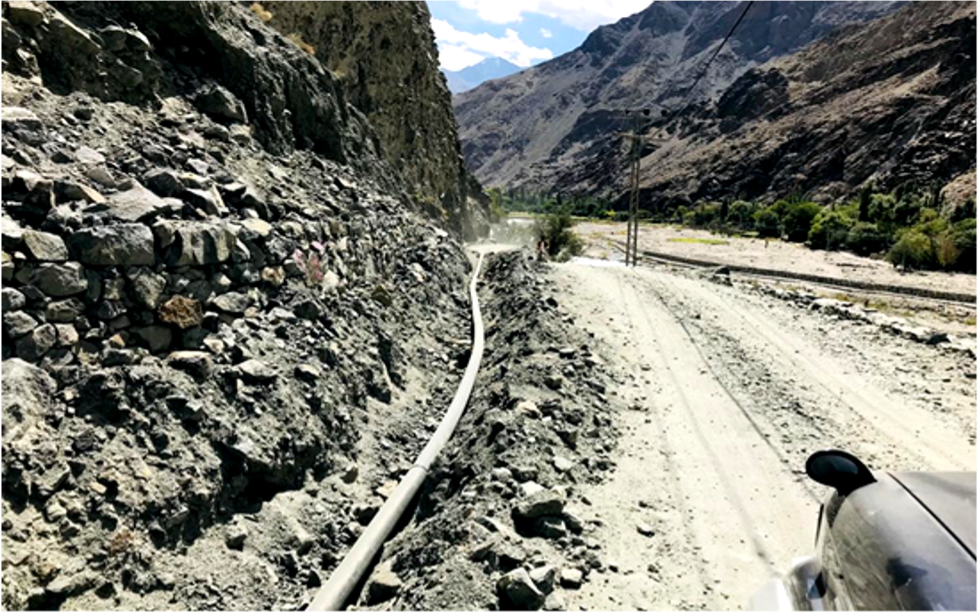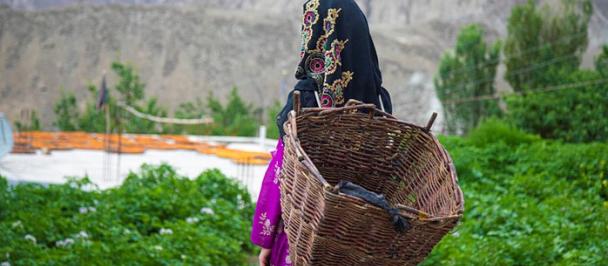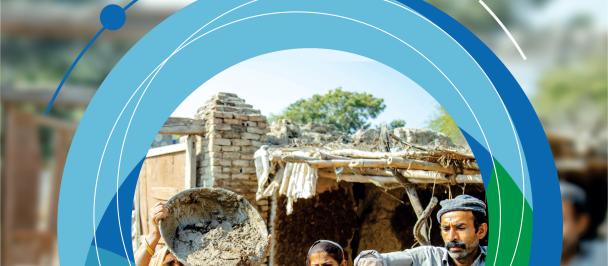Ghulam Rasul laments his plight, “I am a poor man and own a very small piece of land. The lack of water is not giving me enough crop yields to feed my family and I have to purchase wheat from the market. This is putting more burden on me than I can carry. I feel trapped and helpless,” he adds with a heart breaking sigh.
Ensconced in the mountain region of Gilgit-Baltistan, sits the picturesque village of Dagoni at an altitude of 8819 feet. With a population of 2832 people, the community was facing acute problems common to most villages in the region, namely unpredictability in the flow patterns of water. Mountain regions are at the front line of climate change. Disturbances in hydrology disrupt their lives. High altitudes permit only single cropping, and if there is insufficient water, the cropping season is impacted, which in turn forces the community to buy grains from the market. This is a common challenge in the community with poor households more acutely hit by water scarcity.
“Mountain regions are at the front-line of climate change. Disturbances in hydrology disrupt their lives.”
The community has collective land holding of 266 hectare of barren, land but channeling water from source requires putting in place a 12,900 feet long irrigation channel to provide community access to water for agriculture.
Life for women and men was getting more difficult by the day, and mired in a poverty trap, there was little that they could do to change their lives. The cycle of poverty was taking its toll on women and girl child education, as more girls were kept at home to help with mounting water related chores.
The approval of the community request by the Global Water Challenge/The Coca Cola Foundation for implementation of an irrigation scheme by the Mountain and Glacier Protection Organization in collaboration with UNDP, was like a dream come true for the inhabitants.
“I was saving to send my daughter to Skardu for education because I wanted a better and brighter future for her, but the last few years have eaten away our savings,” says Batool a young mother. “Now, with the successful completion of this irrigation scheme I can once again start planning her future,” she adds. The daughter is a primary school student now and this scheme may change her destiny.
The water source was distant and working on this project was not easy for the community with delays caused by Covid-19, but the prospect of the reward at the end kept them mobilized and motivated. Village Dagoni is all set to embrace its new future with new hopes and dreams for its future growth and development.
By replenishing 1.1 billion liters of water back to nature and community, the residents of village Dagoni will not only have food security but also contribute to environmental enhancement by planting trees and expanding rangelands to contribute their share to the ecological restoration of a beautiful but fragile mountain region.

 Locations
Locations






